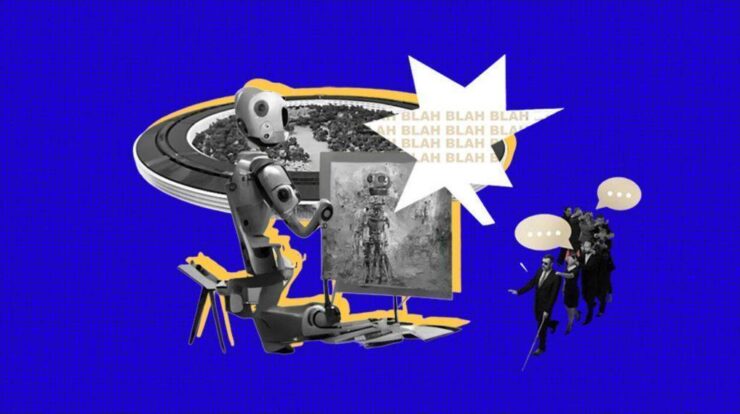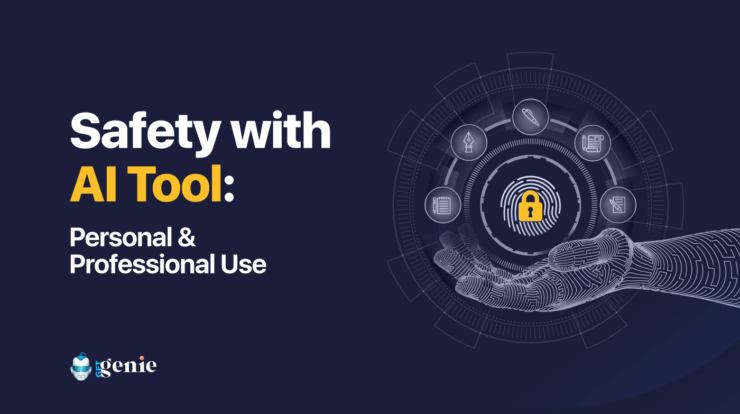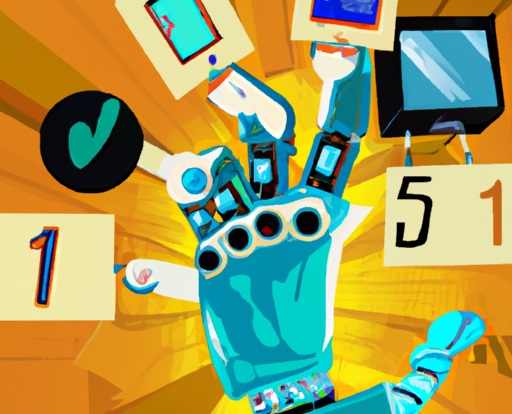
Did you know that AI technology is now capable of writing books? With the advancements in artificial intelligence, it has become possible for computers to generate written content, including books. But the question arises, can you actually sell these AI-generated books on Amazon? In this article, we will explore the potential for selling AI-generated books on one of the largest online marketplaces and delve into the benefits and implications of this emerging trend.
Overview of AI-generated Books
Definition of AI-generated books
AI-generated books are literary works that are created or significantly influenced by artificial intelligence technologies. These books are composed using algorithms and machine learning techniques, where AI systems analyze vast amounts of data, learn patterns, and generate text that imitates and mimics human writing styles. AI-generated books can encompass various genres, including fiction, non-fiction, poetry, and even children’s books. They offer a novel approach to writing and publishing, leveraging the capabilities of AI to automate the creative process.
History of AI-generated books
The concept of AI-generated books has its roots in the development and advancements of AI technologies. While the idea of machines creating literary works can be traced back to early computer programs like the 1961 “The Policeman’s Beard is Half Constructed” produced by the algorithm RACTER, it is in recent years that significant progress has been made in this field. In 2016, an AI system named “Botnik” co-wrote a novel based on the Harry Potter series, showcasing the potential of AI in book creation. Since then, AI-generated books have gained attention and experimentation has flourished, leading to the rise of AI-powered writing tools and platforms.
Benefits of AI-generated books
AI-generated books bring several advantages to the table. Firstly, they have the potential to significantly increase the speed and efficiency of content creation. AI systems can process and analyze vast amounts of information in a fraction of the time it would take a human author, enabling the production of books at a speed that was previously unimaginable. Additionally, AI-generated books have the potential to cater to niche markets and personalize content for individual readers, allowing for a more targeted and tailored reading experience. This can lead to increased reader satisfaction and engagement. Moreover, AI-generated books also provide an opportunity for experimentation with unique writing styles and genres, pushing the boundaries of creativity and expanding literary horizons.
Current Policies on Amazon
Amazon’s guidelines on book publishing
Amazon has established guidelines and policies for authors and publishers who wish to sell their books on the platform. These guidelines ensure that the content meets certain quality standards and complies with legal and ethical requirements. Authors and publishers must adhere to these guidelines to maintain the integrity of the platform and protect the interests of both readers and writers.
Policies regarding AI-generated content
Currently, Amazon does not have specific policies that directly address AI-generated content. However, the existing guidelines on originality, quality, and intellectual property rights would still apply. AI-generated books need to meet the same standards of quality and originality as any other book on the platform. They must not plagiarize or infringe upon the copyrighted material of others, and they should comply with all applicable laws and regulations.
Prohibited content on Amazon
While Amazon allows a wide range of content to be sold on its platform, there are certain types of content that are strictly prohibited. These include content that promotes hate speech, violence, or illegal activities, as well as sexually explicit or offensive material. The prohibition of such content applies to all books, including AI-generated books. It is essential for authors and publishers to familiarize themselves with Amazon’s content guidelines to ensure compliance and avoid any potential violations.
Copyright and Intellectual Property
Ownership of AI-generated content
Determining ownership of AI-generated content can be complex and often depends on the legal framework of the jurisdiction in question. In many jurisdictions, including the United States, copyright law grants ownership of a creative work to its human creator. However, when it comes to AI-generated books, the question of authorship becomes more nuanced. While AI systems play a significant role in generating the text, they are ultimately tools operated by human authors. As such, ownership of AI-generated content is generally attributed to the individual or organization that owns and operates the AI system.
Copyright protection for AI-generated books
AI-generated books are generally eligible for copyright protection, provided they meet the requisite criteria. Copyright law protects original creative works, and AI-generated books can qualify for copyright protection if they exhibit a sufficient level of originality. It is important to note that copyright protection does not extend to the underlying technologies or algorithms used to generate the content but rather to the specific expression of the content itself.
Challenges in copyright infringement cases
Copyright infringement cases related to AI-generated content can present unique challenges. Determining whether an AI-generated book infringes upon the copyright of another work may require an analysis of the similarities and substantial reproduction of protected elements. However, the involvement of AI systems raises questions about the intention and volition behind the creation of the infringing work. These factors can make copyright infringement cases involving AI-generated content more complex and may require the legal system to adapt to the evolving landscape of creative works.
Quality Control and Originality
Ensuring quality of AI-generated books
Maintaining a high level of quality in AI-generated books is crucial to their success and acceptance in the market. To ensure quality, rigorous testing and refinement of AI algorithms are necessary. By continuously training AI systems on large datasets of quality books and incorporating human feedback, the algorithms can learn to generate text that meets the standards of professional writing. Human oversight and editing also play an essential role in eliminating errors, ensuring coherence, and enhancing the readability of AI-generated books.
Avoiding plagiarism and duplicate content
Plagiarism and duplicate content are significant concerns in the publishing world, and AI-generated books are not immune to these issues. While AI systems can generate original content, there is always a risk of unintentional similarities or overlap with existing works. To mitigate this, it is essential for authors and publishers to conduct thorough checks to ensure that AI-generated books do not infringe upon the intellectual property rights of others. This can involve using plagiarism detection tools and implementing strict quality control measures throughout the content creation process.
Maintaining originality and uniqueness
One of the challenges faced by AI-generated books is the need to maintain originality and uniqueness in their content. AI systems rely on patterns and data analysis, which can sometimes result in predictable or derivative writing. To overcome this challenge, AI algorithms can be designed to introduce elements of randomness and creativity, ensuring that the generated content is innovative and distinct. Collaboration between human authors and AI systems can also help infuse originality into the writing process by combining the strengths of both approaches.
AI-generated Books vs. Human-authored Books
Comparison of AI-generated and human-authored books
AI-generated books and human-authored books each possess their own strengths and characteristics. AI-generated books excel in their ability to process vast amounts of information quickly, enabling rapid content creation. They can also adopt different writing styles and emulate established authors, appealing to fans of specific genres or authors. On the other hand, human-authored books have the advantage of emotional depth, unique perspectives, and the ability to tap into complex human experiences and emotions. Human authors bring their creativity, intuition, and personal insights to the table, creating works that often resonate deeply with readers.
Advantages of human-authored books
Human-authored books offer several advantages that AI-generated books struggle to replicate. Firstly, human authors possess a deep understanding of human emotions, cultural contexts, and societal nuances, allowing them to create rich and nuanced narratives that connect with readers on a profound level. Human authors also bring their own personal experiences, unique perspectives, and literary expertise to their works, resulting in original and distinct voices. Additionally, human authors have the capacity for abstract thinking, imagination, and creativity that goes beyond what current AI systems can achieve.
Unique qualities of AI-generated books
AI-generated books offer their own unique qualities that set them apart from human-authored books. They have the potential to produce books at an unprecedented speed, enabling the creation of vast amounts of content quickly. AI systems can also analyze and process huge amounts of data, allowing the exploration of niche topics and the production of highly specialized books. Furthermore, AI-generated books can experiment with new writing styles, break traditional literary boundaries, and offer readers fresh and innovative perspectives that may not have been possible with traditional human-authored books.
Implications for Authors and Publishers
Impact on traditional authors and publishers
The rise of AI-generated books has raised concerns about the potential impact on traditional authors and publishers. The increased speed and efficiency of AI-generated content creation could disrupt traditional publishing models and pose challenges to established authors and publishers. However, it is important to note that AI-generated books cannot replicate the unique talent, creativity, and emotional depth that human authors bring to their works. Traditional authors and publishers can leverage their own strengths, build loyal reader bases, and continue to provide readers with the distinct experience of reading human-authored books.
Opportunities for self-publishing authors
AI-generated books also present opportunities for self-publishing authors. With the availability of AI-powered writing tools and platforms, self-publishing authors can harness the capabilities of AI to enhance their writing process, improve efficiency, and explore new genres and writing styles. AI systems can provide assistance with grammar, vocabulary, and plot development, allowing self-publishing authors to refine and polish their works. Through self-publishing platforms, authors can reach a wider audience and gain exposure in the evolving landscape of AI-generated books.
Future of the publishing industry
The emergence of AI-generated books is reshaping the publishing industry and its future trajectory. While the full extent of the impact is yet to be determined, it is clear that AI technologies will continue to play an increasingly significant role in content creation and consumption. The publishing industry will need to adapt and embrace the opportunities and challenges presented by AI-generated books, finding ways to coexist with and leverage the unique strengths of both AI-generated and human-authored works. Collaboration between AI technologies and human authors may open up new frontiers in creative storytelling and redefine the future of publishing.
Ethical Considerations
Ethical concerns surrounding AI-generated books
AI-generated books bring forth a range of ethical concerns that need to be addressed. One of the primary concerns is the potential for AI-generated books to deceive readers regarding their origin or cause confusion about the authorship. Transparency and clear labeling of AI-generated content can help mitigate these concerns and ensure that readers are aware of the nature of the content they are consuming. Additionally, ethical considerations relating to user privacy, data usage, and consent must be taken into account when AI systems analyze and process user-generated content or personal information.
Potential misuse of AI-generated content
The misuse of AI-generated content is another ethical concern that arises with the proliferation of AI-generated books. AI systems can potentially be used to create and disseminate false or misleading information, leading to misinformation and manipulation of public opinion. Safeguards and responsible use of AI technologies are necessary to prevent the misuse of AI-generated content for malicious purposes. Ensuring the accuracy and credibility of AI-generated books through fact-checking and verification processes is essential to maintain the integrity of the information being presented.
Responsibility and accountability
The responsible development and deployment of AI-generated books require clear guidelines, regulations, and accountability. Authors, publishers, and AI developers have a collective responsibility to ensure that AI-generated content adheres to legal and ethical standards. This includes respecting the intellectual property rights of others, upholding copyright laws, and preventing the dissemination of harmful or offensive material. Creating mechanisms for oversight, auditing, and accountability in the AI-generated book industry is crucial to address ethical concerns and maintain the integrity of the publishing ecosystem.
Legal Challenges and Regulations
Existing legal frameworks for AI-generated content
The legal framework surrounding AI-generated content is still in its nascent stages and varies across jurisdictions. Existing copyright laws generally apply to AI-generated books, protecting them as original works. However, determining the ownership, authorship, and liability for AI-generated content can be complex. The legal system must adapt and provide clarity in areas such as intellectual property rights, liability for content creation, and regulations specific to AI-generated books to address the unique challenges posed by this emerging field.
Regulatory challenges in the publishing industry
The publishing industry faces regulatory challenges in response to AI-generated books. Regulating the quality, originality, and accuracy of AI-generated content presents a significant challenge, as AI systems can create vast amounts of content quickly. Striking the right balance between innovation and accountability is crucial. Regulatory bodies and industry organizations must collaborate to establish guidelines and standards that ensure fair competition, protect readers’ interests, and maintain the credibility and reputation of the publishing industry.
Proposed regulations on AI-generated books
In light of the unique challenges posed by AI-generated content, there have been proposals for specific regulations and laws to govern the creation, distribution, and use of AI-generated books. These proposed regulations aim to address issues such as transparency in authorship, intellectual property rights, and disclosure of AI involvement in content creation. Implementing such regulations would provide clarity, protect the rights of creators and consumers, and foster a conducive environment for the growth of the AI-generated book industry.
The Role of AI in the Creative Process
Benefits of AI in the creative process
AI technologies have the potential to revolutionize the creative process in book writing. They can serve as powerful tools for authors, providing assistance with ideation, language refinement, and creative inspiration. AI systems can analyze vast amounts of existing literature, identify patterns, and propose ideas that human authors may not have considered. This collaboration between AI and human authors can spark new ideas, enhance productivity, and streamline the writing process, ultimately resulting in more engaging and creative books.
Collaboration between AI and human authors
The future of AI-generated books lies in collaboration between AI systems and human authors. AI can automate certain tasks, freeing up human authors to focus on higher-level creative aspects. Human authors can leverage the capabilities of AI to optimize their writing, relying on AI systems for tasks like grammar and syntax correction, fact-checking, and generating ideas for plots or characters. This collaboration can lead to enhanced efficiency, improved quality, and the exploration of new creative frontiers.
AI as a tool for inspiration and assistance
AI can serve as a valuable tool for authors, providing inspiration and assistance throughout the writing process. AI-powered platforms and tools can offer suggestions, generate alternate storylines, highlight potential plot weaknesses, and even detect potential copyright infringements. By leveraging AI as an assistant, authors can enhance their own creativity, refine their writing, and experiment with new ideas, ultimately producing more captivating and innovative books.
Consumer Perception and Acceptance
Public perception of AI-generated books
The public perception of AI-generated books varies widely. Some readers embrace the novelty and possibilities that AI brings to the literary world, appreciating the speed of content creation and the potential for personalized reading experiences. Others may be skeptical or apprehensive, questioning the role of AI in the creative process and the authenticity of AI-generated content. The acceptance and perception of AI-generated books are likely to evolve as the technology continues to develop and as readers become more familiar with the unique qualities and merits of these works.
Consumer acceptance and reception
Consumer acceptance of AI-generated books depends on various factors, including the quality of the content, its originality, and its ability to resonate with readers. While there may be initial hesitation, if AI-generated books can consistently deliver engaging, high-quality content that meets readers’ expectations, acceptance is likely to grow. Building trust and establishing a track record of producing valuable and enjoyable reading experiences can help overcome any reservations and foster wider consumer acceptance.
Market demand and trends
As AI technologies continue to advance and gain prominence, the demand for AI-generated books is expected to grow. This increasing market demand is driven by factors such as the ability to produce specialized or niche content, the potential for personalized reading experiences, and the allure of exploring new genres or styles of writing. Publishers and authors who are attuned to market trends and embrace the potential of AI-generated books may find themselves well-positioned to capture consumer interest and meet evolving reader demands.
In conclusion, AI-generated books offer a unique and innovative approach to writing and publishing. They bring benefits such as increased speed and efficiency, the ability to cater to niche markets, and the potential for experimentation and innovation in writing styles. However, they also raise ethical considerations, including concerns about transparency, potential misuse of AI-generated content, and the responsibility and accountability of publishers and authors. Legal challenges and regulatory frameworks need to adapt to address the unique characteristics of AI-generated books, ensuring protection of intellectual property rights and maintaining integrity in the publishing industry. Despite these challenges, the collaboration between AI and human authors presents exciting opportunities for the creative process, enhancing productivity, and opening new frontiers in storytelling. The public perception, acceptance, and market demand for AI-generated books will continue to evolve, driven by factors such as the quality of the content, consumer trust, and the ability of AI systems to deliver engaging and unique reading experiences. As the publishing industry navigates this ever-changing landscape, a balance between AI-generated and human-authored books can be achieved, ensuring a vibrant and diverse literary ecosystem for readers to enjoy.






